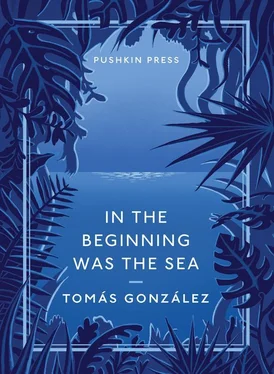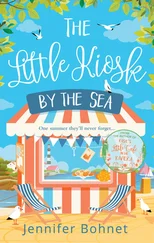“The best thing is for us to knock up a wooden box here. Go fetch some wood… what’s your name again?”
“Gilberto.”
“Get some decent planks, Gilberto, and we’ll make the coffin ourselves.”
But there was no timber. They searched everywhere and could find nothing that would serve. The brother suggested that the best thing to do was to dismantle the bed and use the wood to make the casket. The mattress, they burned down on the beach. Gilberto broke up the bed, took the best of the timber and set about looking for nails, but found none. And so using the nails he had extracted from the bed, he began to hammer the coffin together. The result was a long, ugly wooden crate that did not look fit to transport a body.
Miguelito and Gilberto took the rowing boat; the others went on foot. The sea was calm. The oars moved swiftly, powerfully, through the dark waters. The two men did not speak. The crate containing the body sat between Miguelito in the bow and Gilberto in the stern. They passed within ten metres of one of the little islands in the bay. Rounding the headland, they saw the small, distant figures of people who had left the road and were following the coastline. The boat was moored next to the cemetery and, together, the people brought the coffin ashore. The ribbon of sand glittered in the midday sun.
And together, they buried him.
That same day as the sun set, a languid, tarnished sunset, Guillermo felt a stabbing in his belly. He was hungry. Slowly, he walked to the mango tree, picked up the bamboo pole J. had used to knock fruit from the high branches and picked three ripe mangoes. He sat on a pile of fallen leaves beneath the spreading branches and began to eat. “Honey, pure honey,” he thought as the juice trickled through his beard and ran down his neck.
“Fucking delicious.”
HE DOES NOT know where he is, nor when he departed this life. He is dead. He cannot hear the breeze rustling the branches of the trees, nor the breath of the sea next to him; he cannot feel the fishermen as they walk past his grave, leaving imprints of bare feet on the sand and the faint whiff of tobacco in the air. The time that existed before birth has become one with the eternity that followed death to become a single entity with no beginning and no end, no before and no after. He does not know who owns his lands now. How he came to love it! Did he exist? Does the path still exist? He does not know; the strange flower that was his mind has withered and now, for him, there is no memory. He is lost forever in the vast totality that is now and always has been, this living thing that is at once remote and utterly present, this thing that is but water, though it blossoms as love, terror, wisdom and desire; water that blooms as beauty, blood and passion though always and ever it is water.
And as his cheeks decay, his ears disintegrate, his heart is delivered up to other beings, the sun, this sun which is also fleeting, has not ceased to shine on other lives. On the monkeys leaping from bough to bough. On the cattle ceaselessly chewing their own weight in cud. On the white glare of gulls as they rend the air. On men sitting under trees and eating mangoes.
But he no longer knows these things. He cannot hear the whisper of the sands shifted by burrowing crabs that trickle into his grave like some frantic sandglass. He cannot hear the frantic roar of the waters as the tide swells and the sea retreats, taking with it the sand he is becoming. In the beginning was the sea. All was in darkness. There was neither sun nor moon; no people, no animals, no plants. The sea was everywhere and everything. The sea was Mother. The Mother was not a woman, nor a thing, nor nothingness. She was the spirit of that which was to come and she was thought and memory.










